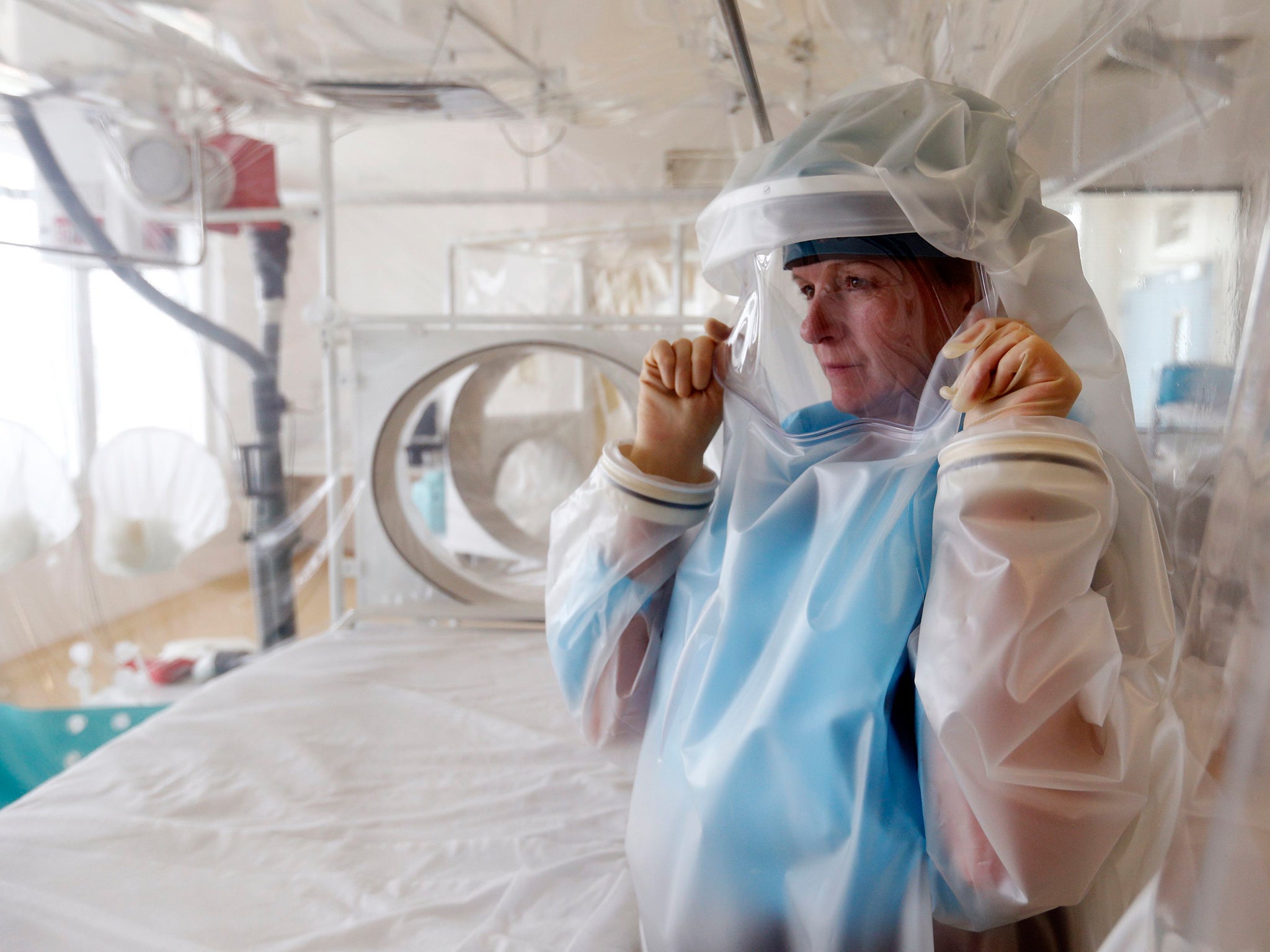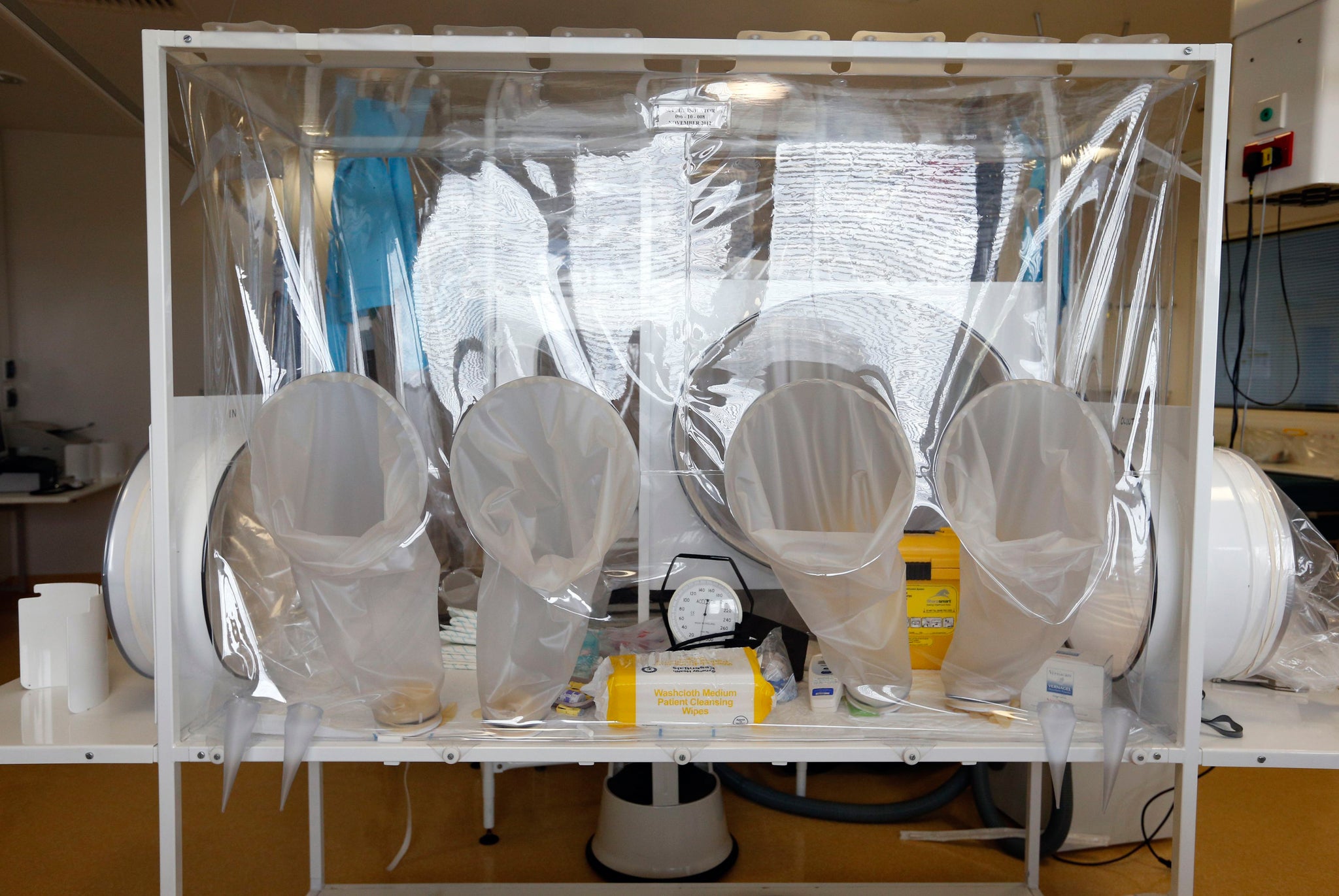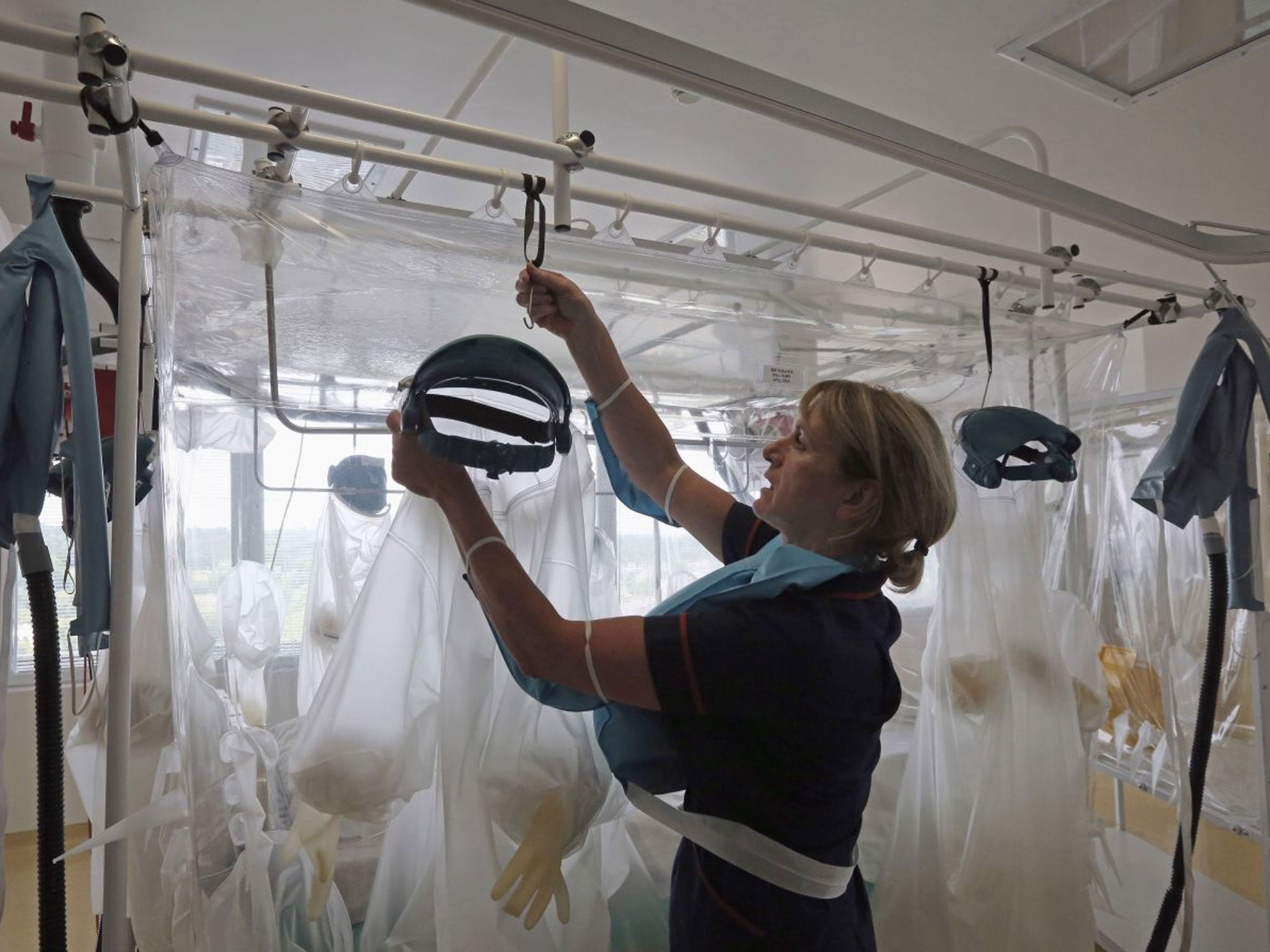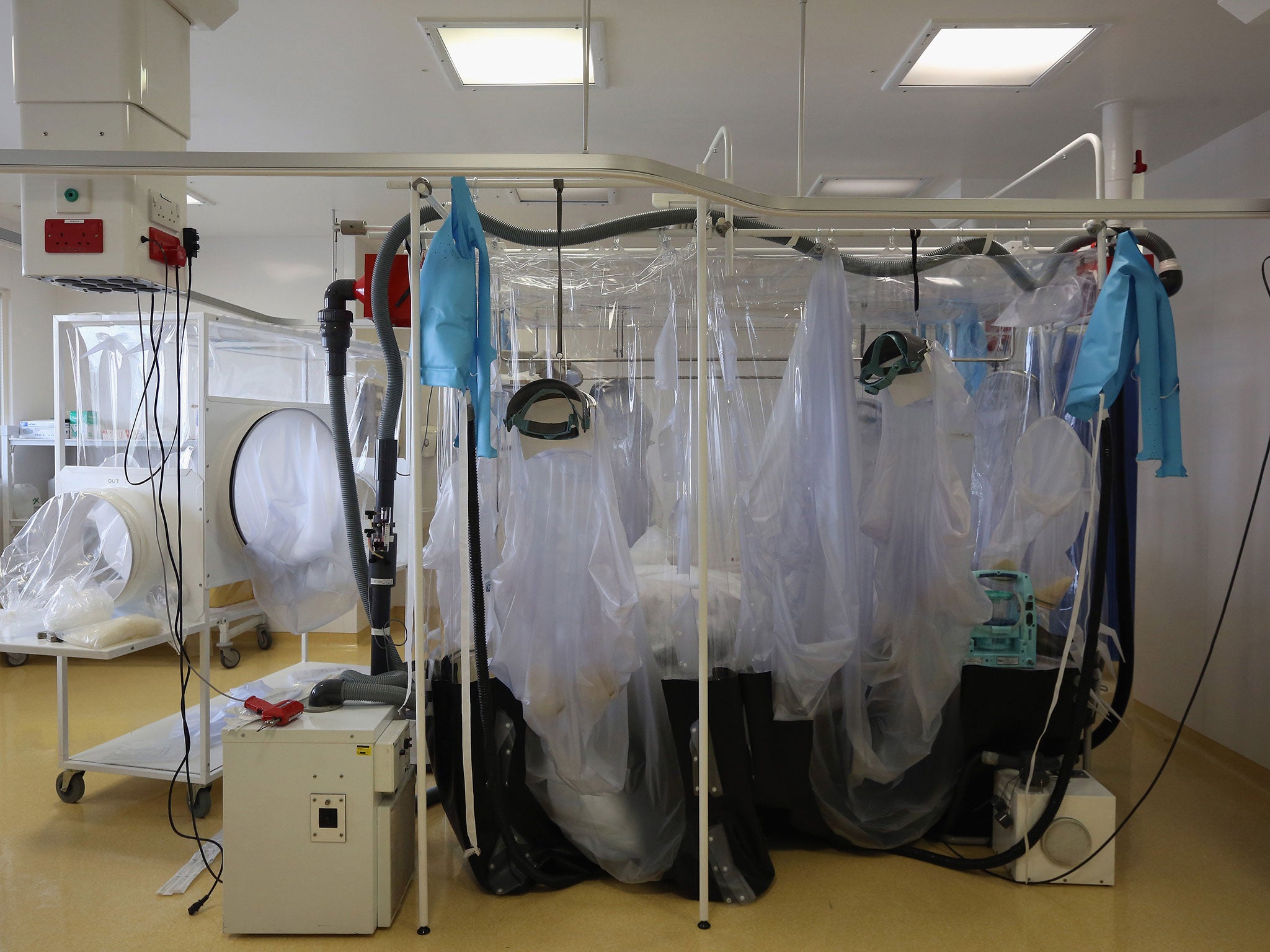Ebola in the UK: How will nurse be treated at London's Royal Free Hospital – and how can we stop the disease spreading?
The health worker has now been transferred to London

Your support helps us to tell the story
From reproductive rights to climate change to Big Tech, The Independent is on the ground when the story is developing. Whether it's investigating the financials of Elon Musk's pro-Trump PAC or producing our latest documentary, 'The A Word', which shines a light on the American women fighting for reproductive rights, we know how important it is to parse out the facts from the messaging.
At such a critical moment in US history, we need reporters on the ground. Your donation allows us to keep sending journalists to speak to both sides of the story.
The Independent is trusted by Americans across the entire political spectrum. And unlike many other quality news outlets, we choose not to lock Americans out of our reporting and analysis with paywalls. We believe quality journalism should be available to everyone, paid for by those who can afford it.
Your support makes all the difference.The NHS health worker who was diagnosed with Ebola after returning from Sierra Leone is being treated at the UK’s only high-level isolation unit at the Royal Free hospital in London.
The woman, who was working with Save the Children, returned to Glasgow yesterday and had been in an isolation unit for infectious diseases at the city’s Gartnavel hospital since 7.50am.
She was transferred to the London hospital on a military-style plane in a quarantine tent attended by health workers wearing protective suits.
Q: What is Ebola?
A: The Ebola virus is a serious disease that originated in Africa. Symptoms include a fever, headache, joint and muscle pain, a sore throat and intense muscle weakness.
The symptoms usually begin suddenly between two and 21 days after becoming infected with the virus. After the initial symptoms diarrhoea, vomiting, developing a rash and impaired liver and kidney function will follow.
Internal bleeding will then occur and the patient may bleed from the ears, eyes, nose or mouth.
The virus is fatal in 50 to 90 per cent of cases. However, the sooner a patient receives medical treatment the higher the chances are they will survive.
Experts believe risk to the public is low in the UK, but anyone who develops such symptoms within 21 days of returning from an at-risk location in Africa should remain inside and should call 111 or 999.

Q: Where will she be treated?
The patient will be treated in Europe’s only specialist high level isolation unit at the Royal Free in north London where all health workers will have to wear protective clothing before being allowed to attend to the patient.
The infected health care worker used a special entrance at the hospital, before being taken to the unit.
The Royal Free in London houses the country’s Ebola treatment centre complete with the latest isolation equipment, which includes a quarantine tent that covers a £25,000 bed, which will be burnt after use.
Staff are trained to deal with the highly infectious virus and must maintain strict protocols to ensure the virus is not spread.

Q: How will she be treated?
While there is no standard method of treatment for Ebola, survival chances increase if it is treated early.
Typical measures to fight the virus include rehydration, either orally or intravenously, and managing the pain, nausea and fever with specialist drugs.
The Royal Free will use the latest methods of treatment to provide intensive care. This will likely include an intravenous drip to replace lost electrolytes, dialysis to treat possible kidney failure and oxygenation treatment for lung dysfunction.
The hospital has an advanced filtration system that removes contaminated air before pumping it out of the building.
ZMapp, an experimental drug used to treat Ebola, may be used at the Royal Free, but supplies are limited are the scientific evidence that it is an effective treatment is inconclusive.

Q: What procedures are in place to stop the disease spreading?
Within the unit there are strict procedures in place to stop the diseases spreading to staff or the wider public.
Health care workers at the hospital will have to wear protective goggles and full body suits. Extra care will be taken when handling blood, secretions or connecting a drip to the patient.
All clothing and clinical waste will be incinerated to ensure no fluids are spread. Any medical equipment that cannot be burnt will be decontaminated and sterilised.
Used needles must be disposed and other equipment must be sterilised.
Workers will be required wash disposable gloves with soap and water after use and then dispose of them, before washing their hands thoroughly again.
The £25,000 bed that the patient will be treated on will be burnt after use.

Q: How does Ebola spread?
A: The virus spreads by direct contact of the bodily fluids of infected patients, such as blood, vomit or diarrhoea, so the risk to the public is low. Possible entry points for the virus include the nose, eyes, open wounds, cuts and abrasions.
Contact with contaminated objects or surfaces, in particular needles and syringes, may transmit the disease.
The virus will survive in a dried state and it can remain infectious for a couple of days within bodily fluids, so it is important to dispose or decontaminate any clothing or objects that may have come into contact with an Ebola patient.
Join our commenting forum
Join thought-provoking conversations, follow other Independent readers and see their replies
Comments